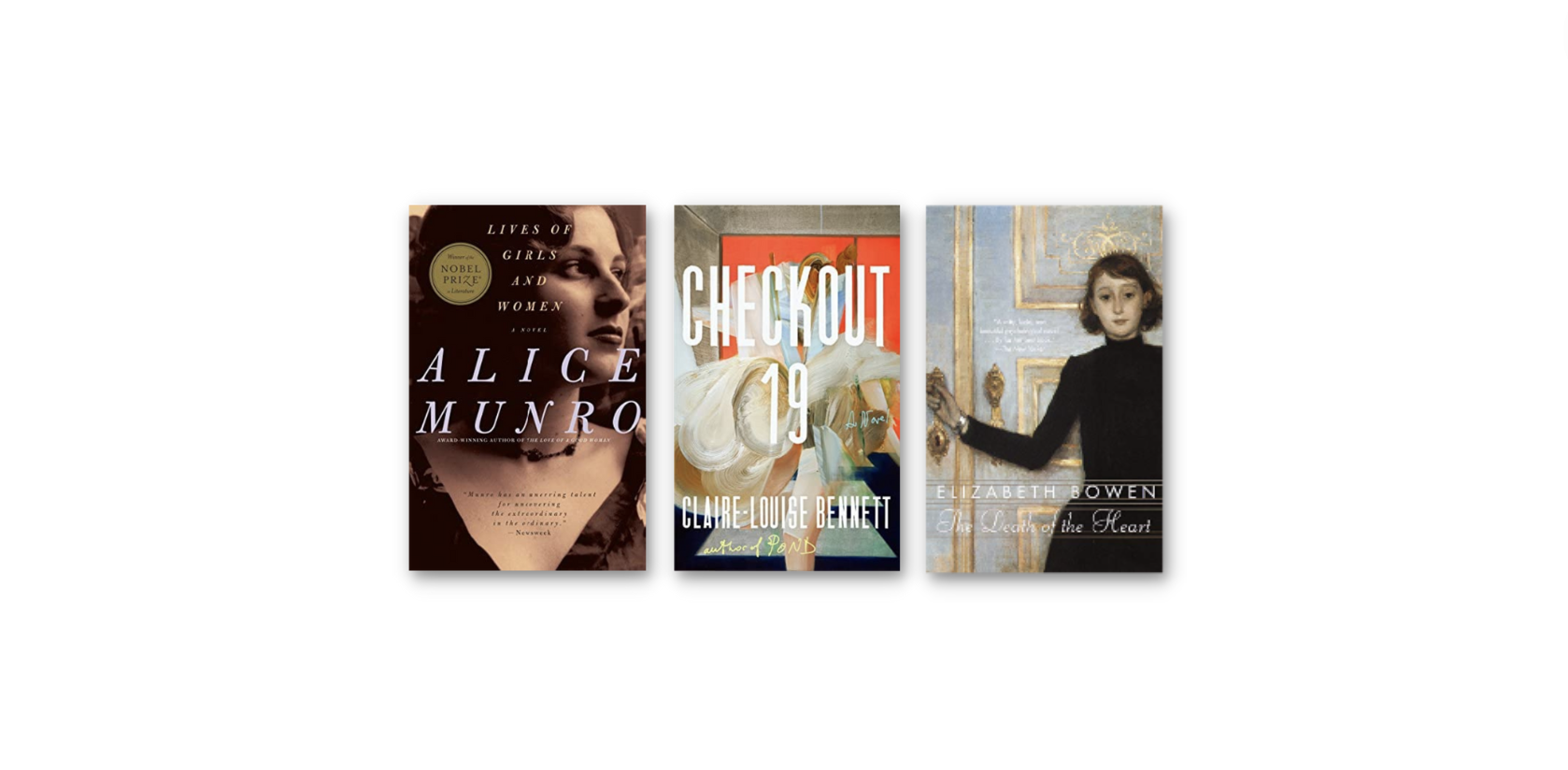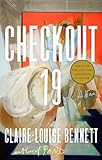 I spent the last week of last year reading Checkout-19, by Claire-Louise Bennett. I was in southern Colorado for Christmas. Multi-colored lights in all the windows and no color anywhere else: white peaks, black rocks, grey skies. There was a big decision I had to make in the new year. I was constantly anxious, frequently cold. But I was reading for pleasure, as the idiom goes, and I was surprised to discover that pleasure really was within reach. Checkout-19 is a great novel. It’s also a great syllabus—the kind of book that tells you about lots of other books. We learn about the narrator, a young woman with thwarted literary ambitions, in part by learning what she’s reading or rereading. In a book with very few names (we never learn the narrator’s), these proper nouns—Calvino, Woolf, Lessing—are familiar companions, reliable guides.
I spent the last week of last year reading Checkout-19, by Claire-Louise Bennett. I was in southern Colorado for Christmas. Multi-colored lights in all the windows and no color anywhere else: white peaks, black rocks, grey skies. There was a big decision I had to make in the new year. I was constantly anxious, frequently cold. But I was reading for pleasure, as the idiom goes, and I was surprised to discover that pleasure really was within reach. Checkout-19 is a great novel. It’s also a great syllabus—the kind of book that tells you about lots of other books. We learn about the narrator, a young woman with thwarted literary ambitions, in part by learning what she’s reading or rereading. In a book with very few names (we never learn the narrator’s), these proper nouns—Calvino, Woolf, Lessing—are familiar companions, reliable guides.
Guidance! That was what I needed. When I finished the book, I opened a Google doc, named it BOOKS 2022, and wrote down every author that Bennett’s narrator had read and I hadn’t: Marina Warner, Lynne Tillman, Anne Garretta, Witold Gombrowicz, Robert Walser, Ann Quin, Christina Stead. The list was long. Surely my guide would be on it.
2022 began and now it’s ending. I made my decision. I can see now that it was a good one—the right one, even—and one of its effects was to give me a lot more time to read and write. And yet, 12 months later, I still haven’t read any of these authors. Not a single one! Scrolling through the Google doc—last edit made on January 9—I’m mortified, reminded of my good intentions and their hypothetically great rewards. It’s impossible not to wonder where all these titles might have guided me, even though I don’t regret where I’ve ended up; such is the seduction of unread books, untraveled paths. And so it’s tempting to give you this list—the aspirational one, the impressive one, the unknown one. But here instead is the real one, which provides neither guidance nor guarantees, but which led me, by circuitous, unplanned paths, to some truly spectacular views.
*
 One of the first books I read this year was a falling-apart copy of The Death of Heart, by Elizabeth Bowen, which I took from the basement of the house where my grandfather lived for sixty years, right before it was sold. The Death of the Heart is an exquisite story about the disillusionment of first love, and it made me wonder if a certain kind of loss-of-innocence narrative has itself been lost—if cynicism, that defensive posture that pretends we don’t really need what’s about to be taken us, has deprived us of a classic form, the arc from guileless wonder to jaded despair. So many novels, these days, seem jaded from the start. I’ve bought two more copies of The Death of the Heart since I finished it, because I want more people to read it and I want more people to write like it.
One of the first books I read this year was a falling-apart copy of The Death of Heart, by Elizabeth Bowen, which I took from the basement of the house where my grandfather lived for sixty years, right before it was sold. The Death of the Heart is an exquisite story about the disillusionment of first love, and it made me wonder if a certain kind of loss-of-innocence narrative has itself been lost—if cynicism, that defensive posture that pretends we don’t really need what’s about to be taken us, has deprived us of a classic form, the arc from guileless wonder to jaded despair. So many novels, these days, seem jaded from the start. I’ve bought two more copies of The Death of the Heart since I finished it, because I want more people to read it and I want more people to write like it.


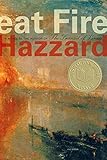
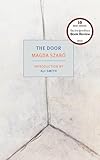


 For a few months, I didn’t read much contemporary fiction. A book club I don’t belong to was reading A Room With A View, so when I found it on my shelf, I started it right away. I was surprised, on page four, to encounter my own handwriting in the margin. Forgetting books I’ve read, like failing to read books I intend to, is a source of guilt that I remind myself ought to be a source of pleasure: you really can step in the same river twice! Among the ones I don’t want to forget (but would revisit even if I remember): Marlen Haushofer’s The Wall, Shirley Hazzard’s The Great Fire, Magda Szabo’s The Door, and C.S. Lewis’s A Grief Observed. I read Jacqueline Rose’s Mothers and Gillian Rose’s Love’s Work in the same month, so that even though the books were written many years apart, I felt like I was listening to the two sisters (two philosophers) talking to each other.
For a few months, I didn’t read much contemporary fiction. A book club I don’t belong to was reading A Room With A View, so when I found it on my shelf, I started it right away. I was surprised, on page four, to encounter my own handwriting in the margin. Forgetting books I’ve read, like failing to read books I intend to, is a source of guilt that I remind myself ought to be a source of pleasure: you really can step in the same river twice! Among the ones I don’t want to forget (but would revisit even if I remember): Marlen Haushofer’s The Wall, Shirley Hazzard’s The Great Fire, Magda Szabo’s The Door, and C.S. Lewis’s A Grief Observed. I read Jacqueline Rose’s Mothers and Gillian Rose’s Love’s Work in the same month, so that even though the books were written many years apart, I felt like I was listening to the two sisters (two philosophers) talking to each other.




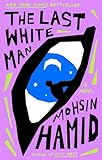

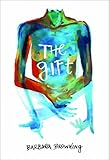 An anxious traveler, I have historically been unable to read in transit. I look out the window and think about the pages I could be turning but am not. But this year, I had to take a lot of trains and, miraculously, I got over this weird block. While going up and down the Northeast Corridor, I read The What Are You Going Through by Sigrid Nunez, The Men’s Club by Leonard Michaels, two books by Annie Ernaux, and three by Gwendoline Riley, including First Love, which prompted me to read Turgenev’s First Love, too. I read Mohsin Hamid’s The Last White Man and then Namwali Serpell’s scathing review of it. Later (stationary), I read Kathryn Scanlan’s Kick The Latch, and every story of hers that I could find online. They’re all short and taut—they really do kick. I read Barbara Browning’s The Gift, after years of ignoring everyone who told me I had to. (It was the subject of an episode of the Public Books podcast that makes podcasts seem worthwhile.) Unsurprisingly, I am now the one proselytizing the novel to my friends—and the one being ignored. For Browning, who is a scholar and dancer as well as a novelist, writing is fundamentally collaborative; The Gift is both a record and product of that collaboration. I’ve been writing my own novel throughout this year, which for me is a solitary and fearfully private experience. I read The Gift just as this privacy was becoming unproductive and intolerable, and I credit it with helping me relinquish a draft that I’d been keeping to myself for too long.
An anxious traveler, I have historically been unable to read in transit. I look out the window and think about the pages I could be turning but am not. But this year, I had to take a lot of trains and, miraculously, I got over this weird block. While going up and down the Northeast Corridor, I read The What Are You Going Through by Sigrid Nunez, The Men’s Club by Leonard Michaels, two books by Annie Ernaux, and three by Gwendoline Riley, including First Love, which prompted me to read Turgenev’s First Love, too. I read Mohsin Hamid’s The Last White Man and then Namwali Serpell’s scathing review of it. Later (stationary), I read Kathryn Scanlan’s Kick The Latch, and every story of hers that I could find online. They’re all short and taut—they really do kick. I read Barbara Browning’s The Gift, after years of ignoring everyone who told me I had to. (It was the subject of an episode of the Public Books podcast that makes podcasts seem worthwhile.) Unsurprisingly, I am now the one proselytizing the novel to my friends—and the one being ignored. For Browning, who is a scholar and dancer as well as a novelist, writing is fundamentally collaborative; The Gift is both a record and product of that collaboration. I’ve been writing my own novel throughout this year, which for me is a solitary and fearfully private experience. I read The Gift just as this privacy was becoming unproductive and intolerable, and I credit it with helping me relinquish a draft that I’d been keeping to myself for too long.
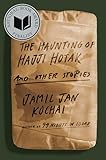

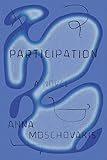

 While I was waiting for feedback from my editor and agent and mom and boyfriend—that is, all the people whose opinions matter most to me—I anxiously read Jamil Jan Kochai’s The Haunting of Hajji Hotak, Jackie Ess’s Darryl, Anna Moschovakis’s Participation, and Meghan O’Rourke’s The Invisible Kingdom. Then, once the draft had been returned to me, but before I could quite accept it—I wrote this?—I read Alice Munro’s The Lives of Girls and Women. I hadn’t read it since I was thirteen (a girl). Nearly two decades later (a woman), it remains one of the best books I’ve ever read.
While I was waiting for feedback from my editor and agent and mom and boyfriend—that is, all the people whose opinions matter most to me—I anxiously read Jamil Jan Kochai’s The Haunting of Hajji Hotak, Jackie Ess’s Darryl, Anna Moschovakis’s Participation, and Meghan O’Rourke’s The Invisible Kingdom. Then, once the draft had been returned to me, but before I could quite accept it—I wrote this?—I read Alice Munro’s The Lives of Girls and Women. I hadn’t read it since I was thirteen (a girl). Nearly two decades later (a woman), it remains one of the best books I’ve ever read.
*
I ended up rereading Checkout-19 several times over the course of the year. Once to write a review of it, again to rewrite a review of it, and just now, as I began this piece. With another January upon us, here I am, considering the same list of titles I assembled last December. I could rename it. BOOKS 2023. I could resolve to really read them this time. No doubt it would feel good: to start an empty year with a full map. Yet when the road forks, as it surely will again (and then again), I hope that I’ll once more let pleasure, that rare reader’s delight, be the true guide.
